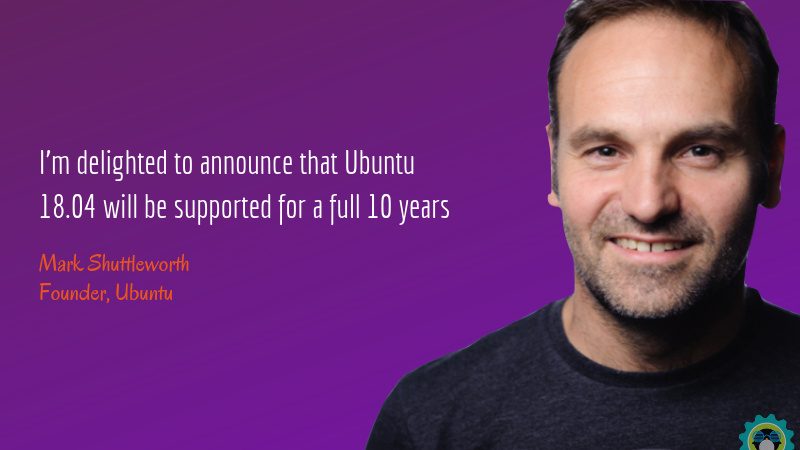Ubuntu’s founder Mark Shuttleworth announced this news in a keynote at OpenStack Summit in Berlin.
I’m delighted to announce that Ubuntu 18.04 will be supported for a full 10 years.

A Move to lead the Internet of Things (IoT)
We are living in a ‘connected world’. The smart devices are connected to the internet everywhere and these are not limited to just smartphones. Toys, cameras, TVs, Refrigerators, Microwaves, weighing scales, electric bulbs and what not.
Collectively, they are called
The 10-years support announcement for Ubuntu 18.04 is driven by the needs of the IoT market.
…in some of
industries like financial services and telecommunications but also from IoT where manufacturing linesfor example are being deployed that will be in production for at least a decade.
Ubuntu 16.04, scheduled to reach its end of life in April 2021, will also be given a longer support
What is not clear to me at this moment is whether the extended support is free of cost and if it is, will it be available to all the users including the desktop ones.
Ubuntu has an Extended Security Maintenance (ESM) option for its corporate customers. With ESM, the customers get security fixes for the kernel and essential packages for a few more years even after the end of life of a certain LTS release.
Of course, ESM is a paid feature and it is one of the many ways Canonical, the company behind Ubuntu, generates revenue.
At the moment, it is not clear if the ten years support is for everyone or if it will be a paid service under Extended Security Maintenance. I have contacted Ubuntu for a clarification and I’ll update this article if I get an answer.
Ubuntu is not for sale…yet
After IBM bought Red Hat for $34 billion, people have started wondering if Ubuntu will be sold to a big player like Microsoft.
Shuttleworth has clarified that he has no plans of selling Ubuntu anytime soon. However, he ambiguously also said that he might consider it if its a gigantic offer and if he will be left in charge of Canonical and Ubuntu to realize his vision.
Source: ZDNet

